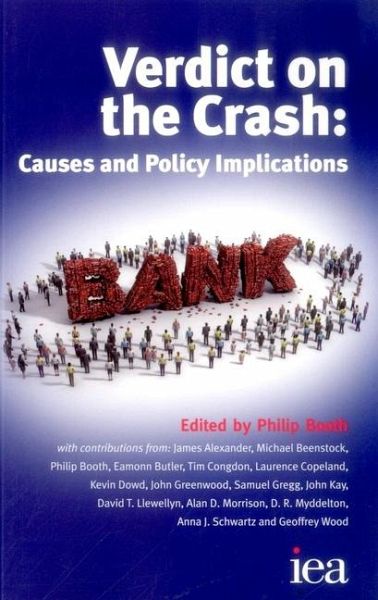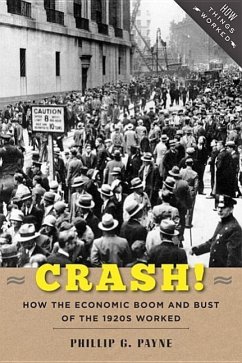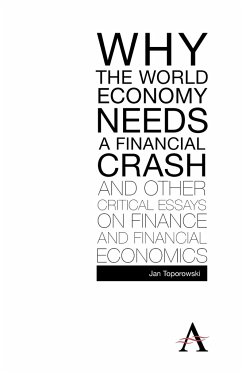
Verdict on the Crash
Causes and Policy Implications
Versandkostenfrei!
Versandfertig in über 4 Wochen
18,99 €
inkl. MwSt.

PAYBACK Punkte
9 °P sammeln!
This title features contributions from James Alexander, Michael Beenstock, Philip Booth, Eamonn Butler, Tim Congdon, Laurence Copeland, Kevin Dowd, John Greenwood, Samuel Gregg, John Kay, David Llewellyn, Alan Morrison, D. R Myddelton, Anna Schwartz and Geoffrey Wood. This book challenges the myth that the recent banking crisis was caused by insufficient statutory regulation of financial markets. Though it finds that statutory regulation failed, and that market participants took more risks than they should have done, it appears that statutory regulation made matters worse rather than better. F...
This title features contributions from James Alexander, Michael Beenstock, Philip Booth, Eamonn Butler, Tim Congdon, Laurence Copeland, Kevin Dowd, John Greenwood, Samuel Gregg, John Kay, David Llewellyn, Alan Morrison, D. R Myddelton, Anna Schwartz and Geoffrey Wood. This book challenges the myth that the recent banking crisis was caused by insufficient statutory regulation of financial markets. Though it finds that statutory regulation failed, and that market participants took more risks than they should have done, it appears that statutory regulation made matters worse rather than better. Furthermore the fifteen experts who have contributed to this study find that government policy failed in other respects too. As with the boom and bust that led to the Great Depression, loose monetary policy on both sides of the Atlantic helped to promote an asset price bubble and credit boom which, at some stage, was bound to have serious consequences. Rejecting the failed approach of discretionary detailed regulation of the financial system, the authors instead propose specific and incisive regulatory tools that are designed to target, in a non-intrusive way, particular weaknesses in a banking system that is backed by deposit insurance. This study, by some of the most eminent authors in the field, is essential reading for all those who are interested in the policy implications of recent events in financial markets.












